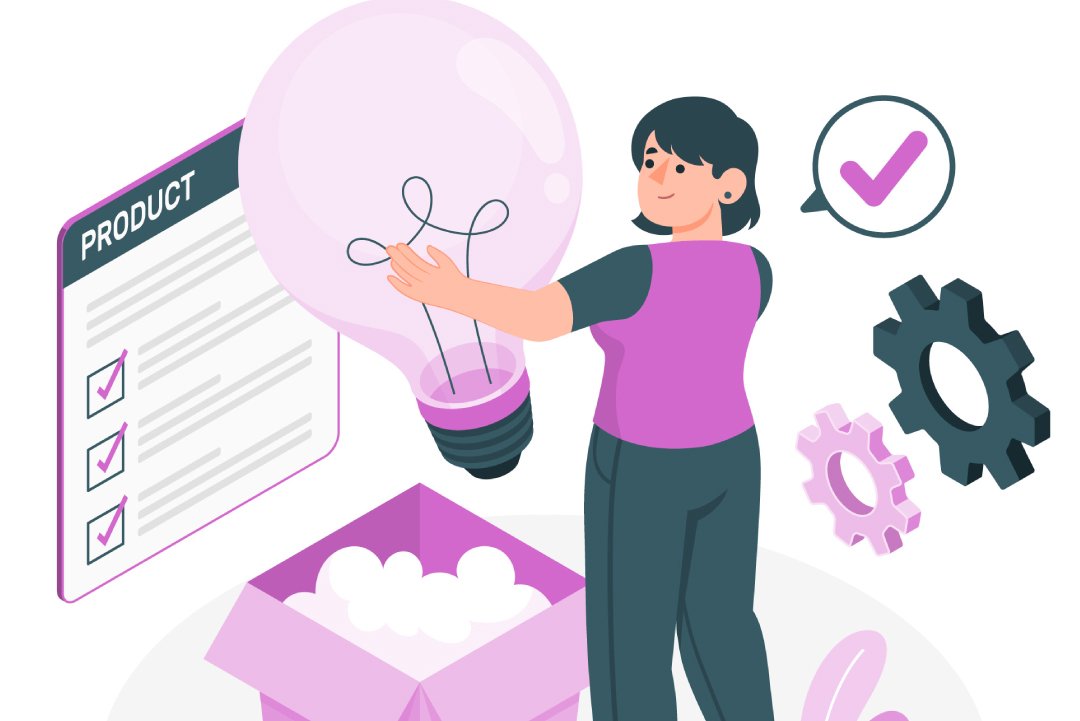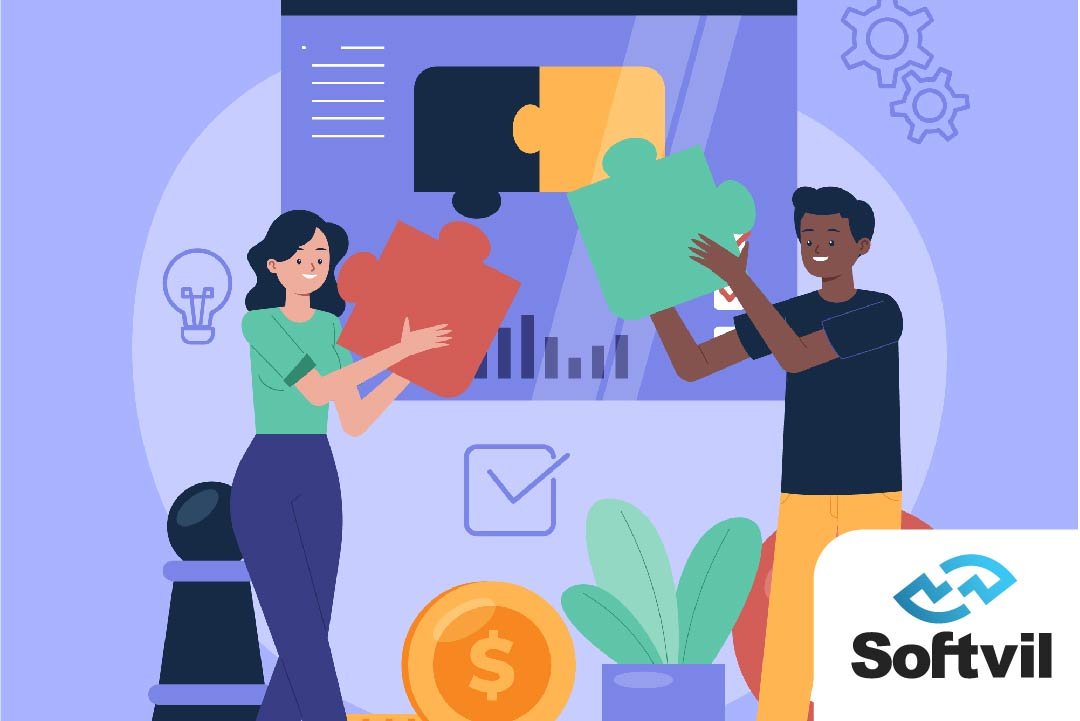- Introduction
- What Is White-Label Software?
- How It Works
- White-Label Software vs. OEM and Custom Software
- Real-World Examples Across Industries
- Benefits for Startups and SMEs
- Key Considerations Before Choosing a White-Label Solution
- The Future of White-Label Software in 2025 and Beyond
- Conclusion
- FAQs
- About Softvil
Introduction
In today’s fast-paced digital environment, startups and small-to-medium enterprises (SMEs) need scalable, agile, and reliable software solutions to thrive. However, building custom software from scratch can be expensive and time-consuming. That’s where white-label software comes into play—a practical, cost-effective software solution that empowers businesses to brand and resell ready-made applications as their own. This guide offers a comprehensive overview of what white-label software is, how it works, how it differs from other software delivery models, where it’s used, and why it’s a game-changer—especially in the context of SaaS solutions for startups and SME digital transformation.
What Is White-Label Software?

White-label software refers to a fully developed application or platform created by one company (the provider) that can be rebranded and resold by another company (the reseller) as their own. In this arrangement, the end-user typically has no idea that the product was created by a third party.
The term “white-label” originates from the retail industry, where products without branding (white labels) were sold to retailers who branded them before placing them on store shelves. This same principle applies to software.
How It Works

Let’s say Company A develops a robust customer relationship management (CRM) system. Instead of selling directly to end-users, Company A offers the CRM as a white-label SaaS platform to Company B. Company B then customizes the branding—logos, domain name, user interface design, and other visual elements—and sells the CRM under its own brand to its clients.
The provider (Company A) continues to handle all technical updates, security, and back-end operations, while the reseller (Company B) focuses on marketing, sales, and customer support.
White-Label Software vs. OEM and Custom Software

Understanding how white-label software differs from other models—like OEM (Original Equipment Manufacturer) and custom software—is critical.
White-Label Software
- Pre-built and fully functional
- Ready for rebranding and reselling
- Faster go-to-market
- No development required from the reseller
- Offered on a subscription (often white-label SaaS) or licensing basis
OEM Software
OEM software involves bundling or integrating software components into other software or hardware products. For example, antivirus software pre-installed on a laptop. The OEM model focuses more on backend licensing, and branding is often not as flexible as white-labeling.
Custom Software
Custom software is built from scratch to meet specific requirements. It offers high levels of customization and is tailored exactly to a company’s needs. However, it’s usually expensive, time-consuming to develop, and requires significant maintenance.
In contrast, white-label software 2025 solutions offer a middle ground—allowing businesses to launch powerful applications quickly without the costs and complexity of custom development.
Real-World Examples Across Industries

White-label software is not limited to a single type of application. It spans across multiple industries and functions. Here are a few examples:
Marketing Automation
White-label marketing platforms allow digital agencies to offer branded services like email marketing, SEO tools, and social media scheduling. For example, a digital agency might use a white-label platform like SharpSpring or Sendinblue and resell it under their own brand.
E-commerce
Platforms like Shopify and BigCommerce offer white-label solutions to entrepreneurs looking to run online marketplaces. Businesses can launch a fully branded online store without any coding.
Finance and FinTech
FinTech companies use white-label solutions for digital wallets, payment gateways, and crypto exchanges. Providers like Galileo and Synapse offer back-end infrastructure, while startups focus on user experience and branding.
Education Technology
EdTech platforms such as online course portals, learning management systems (LMS), and tutoring marketplaces often offer white-label SaaS options. Companies can launch branded online learning platforms without building from the ground up.
Healthcare and Telemedicine
Healthcare providers and startups can leverage white-label patient management systems, appointment booking apps, and telemedicine platforms. These are particularly valuable in sectors where compliance and security are crucial, and building a custom solution is both risky and expensive.
Travel and Hospitality
Travel agencies and platforms frequently use white-label booking engines, hotel management systems, or flight search tools to deliver branded experiences to customers.
These examples highlight the flexibility and reach of white-label software, especially in rapidly evolving industries.
Benefits for Startups and SMEs

One of the biggest reasons for the rising adoption of white-label SaaS is its significant value proposition for startups and SMEs. Let’s break down the core benefits:
Faster Time to Market
Developing a new product can take months or even years. With white-label software, businesses can go live within days or weeks. This quick launch enables startups to capitalize on trends and opportunities without delay.
Lower Costs
Custom software development involves hiring developers, designers, and QA testers, not to mention ongoing infrastructure and maintenance costs. White-label software 2025 offerings reduce these upfront and long-term expenses, making them ideal cost-effective software solutions.
Focus on Branding and Customer Experience
With the technical side taken care of, businesses can focus on creating a compelling brand identity and enhancing the customer journey. This is especially useful for SaaS solutions for startups looking to establish a strong market presence quickly.
Scalability
Most white-label SaaS platforms are built with scalability in mind. As your user base grows, the underlying infrastructure—managed by the provider—can handle increased demand without you needing to worry about backend adjustments.
Ongoing Support and Maintenance
The white-label provider manages updates, patches, and technical issues. This is a major relief for non-technical founders or lean teams. It also ensures your software remains compliant and secure.
Accelerated SME Digital Transformation
In 2025, digital transformation is not optional—it’s essential. White-label software empowers SMEs to digitize operations, enhance customer interactions, and stay competitive in a tech-driven market without the hefty investment traditionally associated with digital tools.
Product Testing and Market Validation
Startups often need to validate their ideas before scaling. A white-label SaaS platform allows them to test their business model or features with real users, gather feedback, and refine their approach—without building from scratch.
Key Considerations Before Choosing a White-Label Solution

While white-label software offers numerous benefits, businesses should evaluate a few key areas before committing to a solution:
Customizability
Ensure that the white-label platform offers enough branding and UI customization to truly reflect your business identity.
Scalability and Performance
Look for providers with a proven track record of reliability and performance, especially as your user base grows.
Compliance and Security
Make sure the provider adheres to necessary legal and data protection regulations, especially in sensitive sectors like healthcare or finance.
Support and Documentation
Reliable technical support and comprehensive documentation are essential for smooth operation and troubleshooting.
Pricing Model
Compare the subscription, licensing, and revenue-sharing models offered by various providers to determine the best fit for your business.
The Future of White-Label Software in 2025 and Beyond

As we move further into 2025, the white-label software 2025 trend shows no signs of slowing. Cloud computing, AI, automation, and no-code/low-code platforms are making white-label SaaS more powerful and accessible than ever before. These advancements are enabling even non-technical entrepreneurs to launch full-fledged digital products with minimal barriers to entry.
Moreover, as businesses globally continue to prioritize SME digital transformation, white-label software will remain a critical tool for enabling agility, innovation, and rapid growth.
Conclusion
White-label software is revolutionizing how businesses launch and scale digital products. It removes traditional entry barriers, reduces costs, shortens development timelines, and allows businesses to focus on branding and customer engagement. For startups and SMEs, especially those seeking SaaS solutions for startups or looking for cost-effective software solutions, white-label platforms are a smart and strategic choice.
Whether you’re launching a new fintech app, running a digital agency, or modernizing a healthcare system, white-label software 2025 provides the tools to achieve your goals faster and with greater efficiency. It’s more than just a software model—it’s a foundational pillar of modern entrepreneurship and SME digital transformation.
FAQs
White-label software is a ready-made application developed by one company that other businesses can rebrand and sell as their own.
Custom software is built from scratch for a specific business, while white-label software is pre-built and rebranded, offering faster and more cost-effective deployment.
White-label SaaS is ideal for startups, SMEs, and agencies that want to launch digital products quickly without investing heavily in development.
Yes, most white-label platforms allow branding and UI customization, though the core functionality typically remains the same.
Absolutely. It supports SME digital transformation by offering cost-effective software solutions that are easy to deploy and scale.
About Softvil
Softvil Technologies is a leading software development company specializing in robust, scalable, and fully customizable white-label SaaS solutions. With a proven track record of empowering startups and SMEs, Softvil blends technical excellence with deep domain expertise to deliver ready-to-market products that clients can brand and launch as their own. From SaaS platforms to mobile apps, our solutions are built for flexibility, speed, and security—driving digital growth through cost-effective software solutions tailored to each brand’s unique identity.

